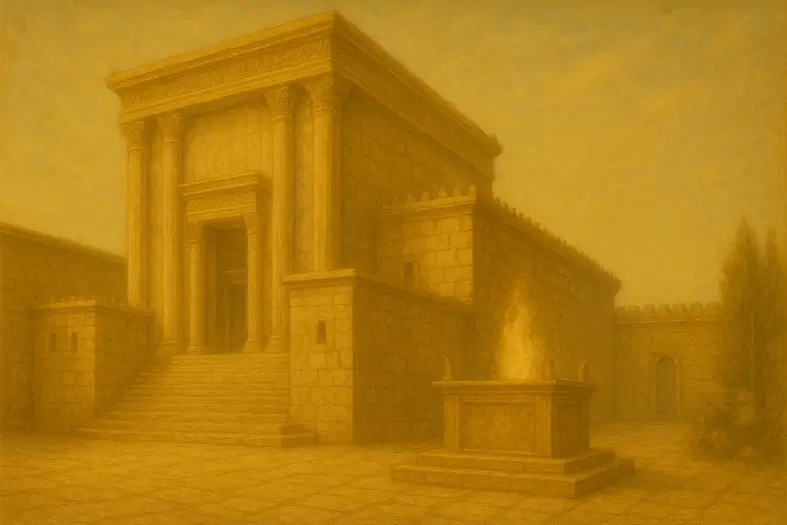


It is forbidden to burn any incense or offering on the Golden Altar other than the Ketoret commanded by the Torah.
This mitzvah prohibits bringing any foreign offering upon the Golden Altar, which was reserved solely for the burning of the sacred Ketoret incense. No burnt offerings, meal offerings, drink offerings, or other incense mixtures were permitted.
Rambam explains that this command ensures the Golden Altar’s unique role in the Temple service—its entire function was to elevate the daily incense, which symbolized the prayers of Israel rising to Hashem. Sefer HaChinuch emphasizes that the restriction preserved reverence and prevented confusion between offerings meant for the Outer Altar and the inner incense offering.
The mitzvah highlights that holiness requires boundaries: just as the incense was restricted in formula and purpose, so too the altar was restricted in function. Attempting to innovate or alter its use diminishes sanctity and dishonors Hashem’s service.
Commentary & Classical Explanation:


Represents the concept of spiritual intentionality, purity, and sanctity—set apart for a higher purpose.
Concerns the Beit HaMikdash, korbanot (offerings), and priestly service.
Signifies awe and reverence toward Hashem—living with awareness of His greatness and presence.
Mitzvot that define and deepen the relationship between a person and their Creator. These include commandments involving belief, prayer, Shabbat, festivals, sacrifices, and personal holiness — expressions of devotion rooted in divine connection.

Dive into mitzvos, prayer, and Torah study—each section curated to help you learn, reflect, and live with intention. New insights are added regularly, creating an evolving space for spiritual growth.

Explore the 613 mitzvos and uncover the meaning behind each one. Discover practical ways to integrate them into your daily life with insights, sources, and guided reflection.

Learn the structure, depth, and spiritual intent behind Jewish prayer. Dive into morning blessings, Shema, Amidah, and more—with tools to enrich your daily connection.

Each week’s parsha offers timeless wisdom and modern relevance. Explore summaries, key themes, and mitzvah connections to deepen your understanding of the Torah cycle.